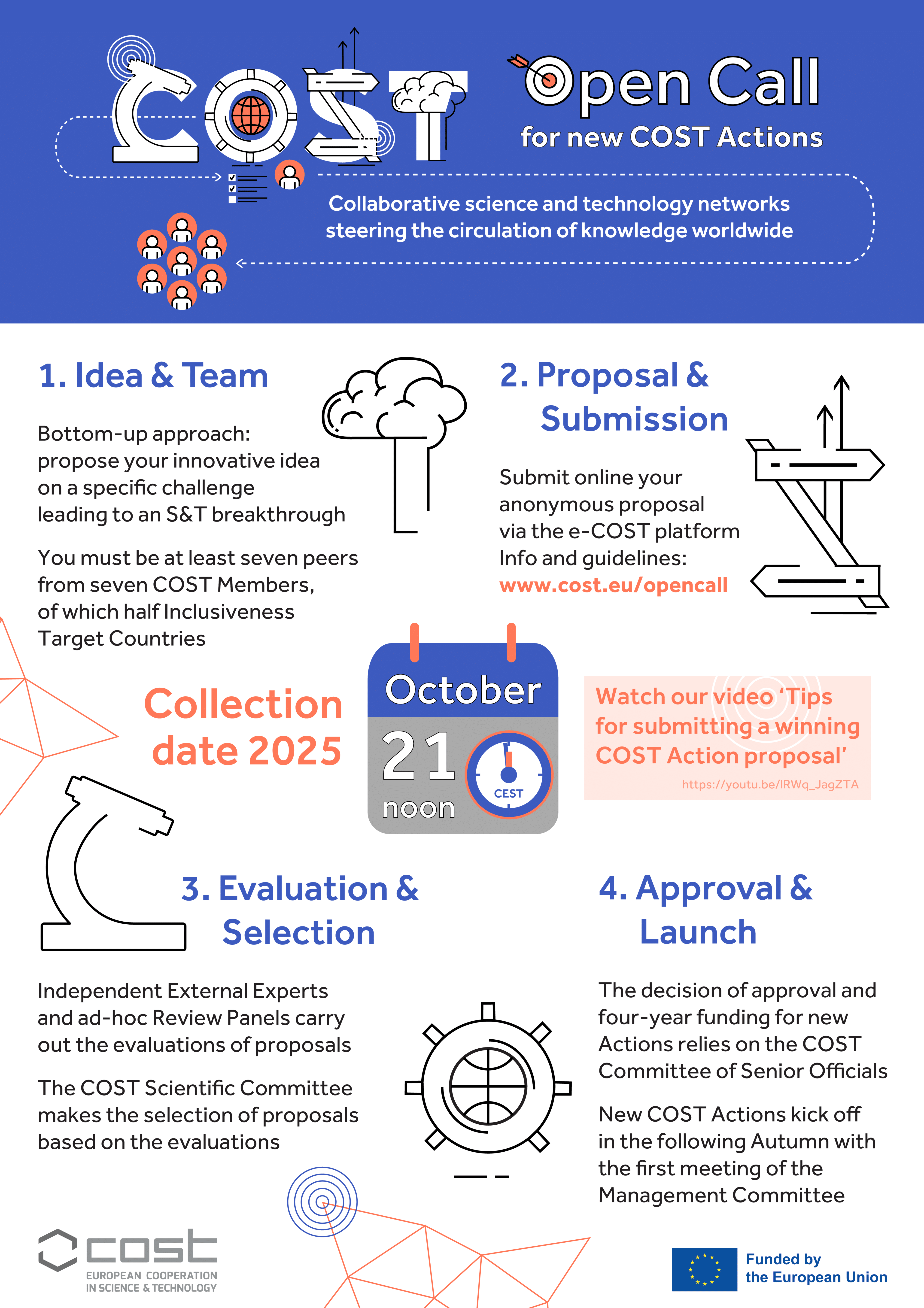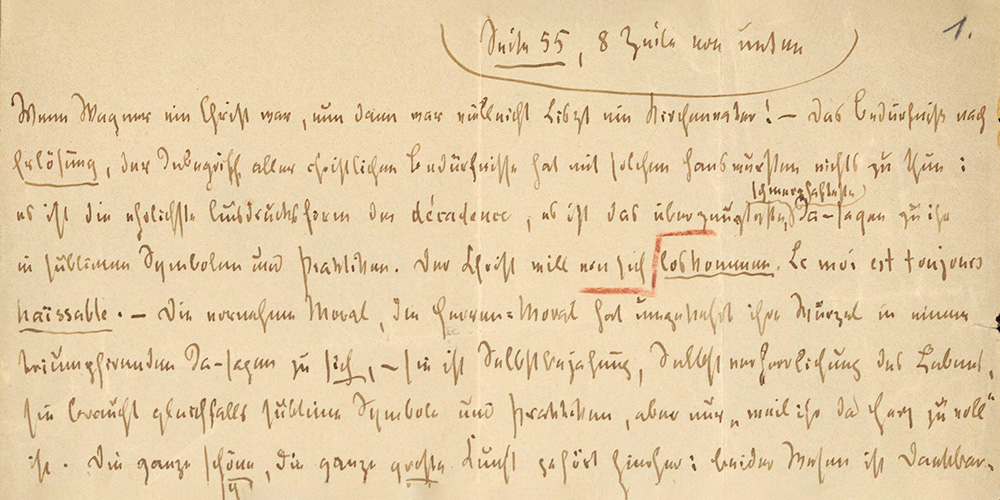Ensuring human rights at sea
Human rights at sea is the focus of the newly acquired COST Action project, “BlueRights”, led by Prof. Anna Petrig from the Faculty of Law.
In an interview for the Grants Office newsletter, she explains the main aim of the project and shares her experience in preparing the proposal.
Prof. Petrig, you recently heard that your COST Action proposal "Blue Rights" will be funded, congratulations, this is great news. Could you briefly tell us what the main aims of the project are?
COST Action “BlueRights” is a research network exploring, from a legal perspective, how basic human rights – the rights to life, liberty and health – can be enjoyed also by people at sea and by all people at sea, and what action needs to be taken to this end by States and other actors. The oceans are attracting growing attention, but people at sea still receive little consideration by stakeholders, scholars and the public at large. The frequent violations of their most basic human rights often go unseen and unpunished. As a result, human rights violations on board merchant ships, fishing vessels and cruise liners are thriving, including in European waters.
COST Action “BlueRights” brings together academics, practitioners and stakeholders working in the field of human rights at sea. The grant - around €500,000 over four years - will be used to fund networking activities such as workshops, conferences, training schools, capacity building events, publications and dissemination activities, and short-term exchanges between researchers.
What was your main motivation to apply for and chair a COST action?
Human rights at sea is a relatively new field of study. About a decade ago, key actors, including states in international court cases, publicly denied that human rights applied in the maritime context. However, over the past 15 years, three major crises - the security crisis of piracy, the migration crisis, and the health crisis of the pandemic - have brought people at sea and the risk of violations of their most basic rights into sharper focus. The ensuing doctrinal and policy debates have largely dismantled the idea that the oceans are an exceptional space where human rights do not apply. However, many legal issues, some of them fundamental, remain unresolved.
Human rights at sea has long been a niche topic. In recent years, the number of researchers specialising in this emerging field has grown considerably. However, researchers continue to work in relative isolation. What is lacking is an exchange that goes beyond legal fields, specific categories of persons at sea, national borders and academia. This is where “BlueRights” comes in, aiming to create a research community that goes beyond the current sectoral approach.
You are the chair of the COST Action. During the preparation phase more than 70 people from 38 countries were involved. How did you find the partners and coordinate the preparation of the proposal?
I wrote my PhD on human rights at sea and was one of the first lawyers to publish a monograph on the subject. This led to various invitations to speak on the topic, in Europe and beyond. As a result, my network has grown steadily. For COST Action proposals, however, it is not enough to have a large number of proposers. Rather, a successful proposal requires a network that represents as many COST countries as possible and is well-balanced. The latter means not only gender balance and a good number of young researchers, but also people representing universities, capacity building institutions, international organisations, international courts and tribunals, national and European authorities dealing with maritime issues, think tanks, business actors and NGOs. In order to meet these quotas, I spent days searching for and contacting people in Europe and beyond.
How can other researchers join your COST Action? Are you looking for particular disciplines or topics?
The network is open to anyone working at the intersection of human rights and the law of the sea. Interested researchers can apply to one of the three “BlueRights” Working Groups via the COST Action website. The project looks at human rights at sea mainly from a legal perspective, but within law it is multidisciplinary, combining in particular international law, law of the sea, international maritime law, criminal law and labour law. In addition to these different legal disciplines, pursuing the goal of “BlueRights” will also require the insights of other disciplines, in particular political science and sociology.
What advice do you have for other researchers planning to submit a COST Action proposal?
COST Actions are very competitive. The success rate of the last call was 11.5%, with only 23% of funded projects in the humanities. This means that only well-prepared proposals supported by a sufficiently large and diverse network of proposers will be retained. This is a time-consuming exercise with an uncertain outcome. However, even if you are not selected, the mere submission of a proposal will significantly expand your network.
What are the next steps?
On 31 October 2024, the first meeting of the Management Committee took place at the COST Headquarters in Brussels. The structure of the Action, the leadership positions and the first activities were decided. In January 2025, the Opening Conference will take place in London, hosted by one of the partner institutions in cooperation with the University of Basel. The three Working Groups will meet back-to-back. In parallel with the planning of these two launch events, we are contacting people to further expand the network, which has now grown to almost 100 members.
COST Action
COST (European Cooperation in Science and Technology) is a funding organisation supporting research and innovation networks. Its aim is to foster collaboration among researchers and innovators from different European countries, promoting the exchange of research experiences and ideas.
A COST Action is a research network developed through a bottom-up approach, meaning researchers from various fields can work on a topic of their choice. The goal is to create an inclusive, interdisciplinary environment where individuals at all career stages can grow professionally.
Any interested researcher can submit a proposal for a COST Action topic or join an existing Action. The next deadline for proposal submissions is 21 October 2025. This leaves enough time to connect with other academics and prepare a proposal collaboratively. Visit the COST website for more details.
COST Actions are planned for 4 years with average budget around 575’000 EUR.




